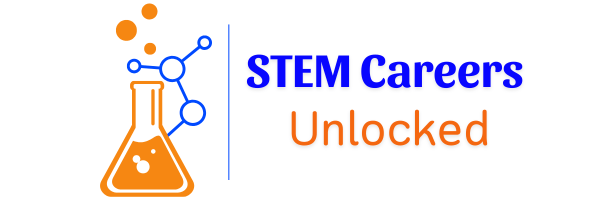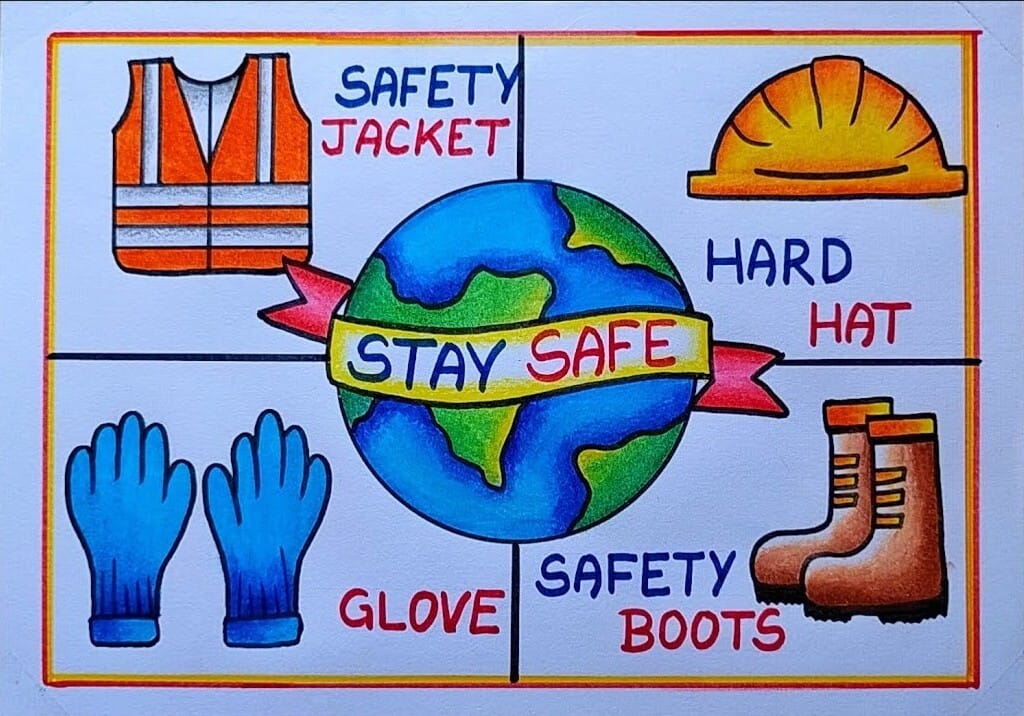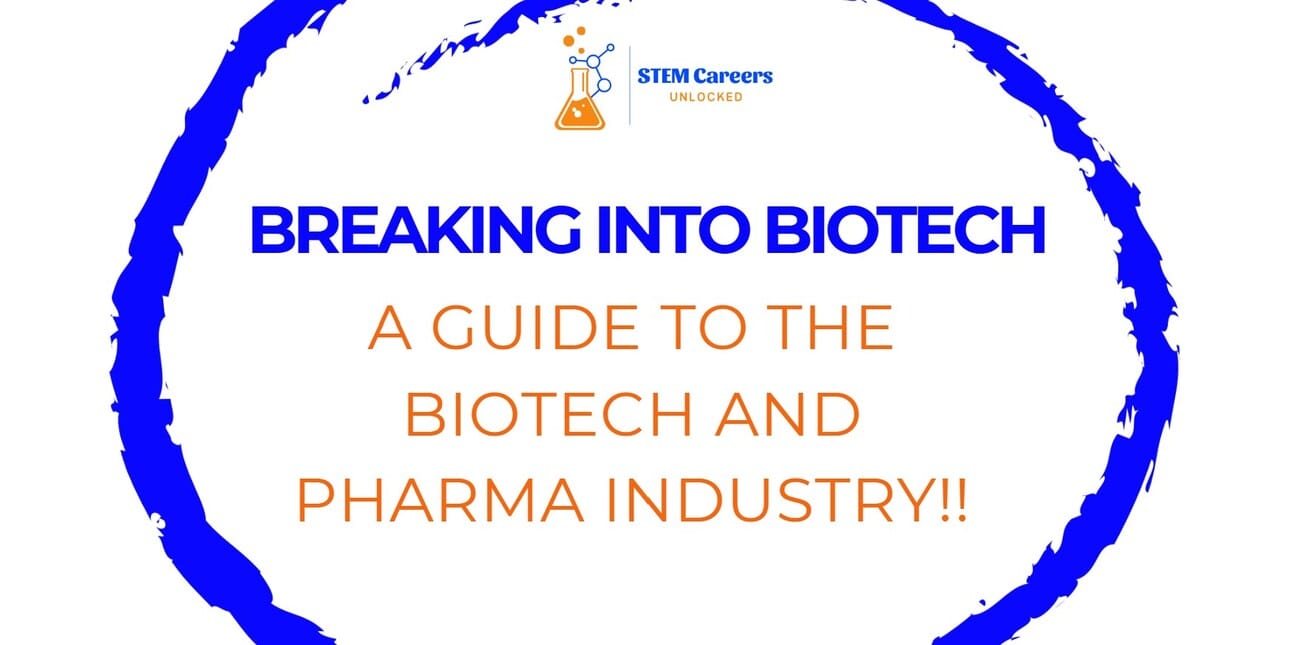
Happy World Population Day!
This July 11th marks World Population Day, a global initiative to highlight how population trends impact our shared future. From sustainable development and resource allocation to reproductive rights and gender equality, these issues shape the world you'll inherit.
Today’s issue:
🔎Career Spotlight: Protect People & the Planet: Step into an EHS Career
💡Skills Spotlight: Boundaries Aren’t Just About Saying No!
🔥Career Glow-Up Challenge: 1-Minute Career TikTok Reel Challenge
🔥Professional Resources: Everyone Talks About Making a First Impression, But What About Your Last One?
💼Resource: Breaking into Biotech: A Guide to the Biotech & Pharma Industry

🔎STEM CAREER JOB OF THE WEEK
🌱🌱Protect People & the Planet: Step into an EHS Career

An EHS (Environmental Health and Safety) Associate helps ensure companies comply with safety and environmental regulations. In biotech and pharma, this means keeping people safe, protecting the planet, and ensuring that labs and production areas meet standards set by organizations like OSHA and the FDA.
🎓Major:
- Environmental Science, Occupational Health & Safety, Industrial Hygiene, Biology, Chemistry, Environmental Engineering, Safety Management, or other related science degrees.
Job functions:
🌱🌱On a typical day, they might inspect for safety hazards, assist in managing chemical waste, update safety procedures, or train coworkers on how to stay safe at work. It’s all about keeping things running smoothly—and safely. Some key responsibilities include:
🔎Conduct safety audits and hazard assessments in labs, cleanrooms, and production areas
🔎Help manage programs like chemical hygiene, biosafety, and emergency response
🔎Monitor waste disposal and ensure compliance with EPA and local environmental laws
🔎Investigate accidents or near-misses and support root cause analysis
🔎Ensure the company complies with OSHA, FDA, and state safety regulations
🔎Assist with employee training on topics like PPE use, chemical handling, or emergency drills
🔎Maintain safety data sheets (SDS) and EHS documentation systems
🔎Support sustainability or energy efficiency initiatives (in some companies)
🧠Skills Needed:
Technical:
- Knowledge of OSHA, EPA, NIOSH, and local safety/environmental regulations
- Risk assessment and incident investigation tools
- Familiarity with Safety Data Sheets (SDS), PPE, and lab safety protocols
- Basic understanding of hazardous waste management and reporting
- Proficiency in Microsoft Office, EHS software platforms (e.g., Enablon, Intelex)
Soft Skills:
- Strong attention to detail
- Communication and training skills
- Problem-solving and critical thinking
- Organization and documentation
- Confidence to speak up in safety-sensitive situations
💰Salary Landscape:
- The salary range varies depending on factors such as location, experience, and skill level.
- You can expect an annual salary ranging from $29,114 to $109,547, with an average of $70,725 per year in the United States. Source: Zip Recruiter)

HR is lonely. It doesn’t have to be.
The best HR advice comes from people who’ve been in the trenches.
That’s what this newsletter delivers.
I Hate it Here is your insider’s guide to surviving and thriving in HR, from someone who’s been there. It’s not about theory or buzzwords — it’s about practical, real-world advice for navigating everything from tricky managers to messy policies.
Every newsletter is written by Hebba Youssef — a Chief People Officer who’s seen it all and is here to share what actually works (and what doesn’t). We’re talking real talk, real strategies, and real support — all with a side of humor to keep you sane.
Because HR shouldn’t feel like a thankless job. And you shouldn’t feel alone in it.

💡SKILLS SPOTLIGHT
Boundaries Aren’t Just About Saying No!

✨✨We tend to think of boundaries as personal. But in reality? Boundaries are a career skill.
Clear, healthy boundaries are how we:
Protect our focus time
💬Avoid burnout
💬Set expectations with colleagues and leadership
💬And model strong leadership in the process
Whether you’re leading a team or climbing the ladder, your ability to manage your time, energy, and priorities signals to others how to treat you—and how to lead themselves.
When your workload is full:
💠"Thanks for thinking of me for this. I’m at capacity right now, so I won’t be able to take this on—but happy to revisit next quarter."
When you need uninterrupted time:
💠”I’m blocking off this afternoon for deep work. If it’s urgent, feel free to send a message and I’ll respond once I’m done."
When a meeting could be an email:
💠"I’d love to weigh in—could you send a quick summary or action items via email instead?"
These aren’t just polite ways to protect your peace. They’re proactive steps toward managing your role with intention.
🎯This week’s challenge:
Practice one new boundary at work this week—whether it’s protecting your calendar, declining a request, or redefining your availability—and pay attention to how it feels.
👉🏼Then hit reply and tell me:
What boundary did you try—and what was the outcome? I’d love to cheer you on.

Here's a tip from a newsletter we think you'll like!
🧬🧬Ever Wonder Where Science Is Headed Next? If you're curious about things like AI-designed proteins, DNA nanotech, or how today’s weirdest research might shape tomorrow’s breakthroughs, you’ll love Plenty of Room. It’s a weekly email that breaks down the latest in molecular science. Just smart, fascinating stuff, straight to your inbox.

🎤🔥CAREER GLOW-UP CHALLENGE:
1-Minute Career TikTok or Reel Challenge

🔥🎤 Goal: To build your personal brand and practice storytelling by sharing valuable, authentic, career-related content in a format that boosts your visibility, credibility, and confidence.
Show What You Know
Short videos are a fast, powerful way to:
🎙️Demonstrate your skills, thinking, and personality
🎙️Share your perspective in a saturated job market
🎙️Communicate what you do in a way that actually sticks
Develop In-Demand Skills
You’re building:
🎙️Communication: Clarity, tone, delivery
🎙️Creativity: Storytelling, editing, audience engagement
🎙️Confidence: Being visible in your field without overthinking it
These are all crucial soft skills employers love — and they don’t show up on a resume.
Grow Your Digital Presence
Recruiters, collaborators, and peers are already on TikTok, Reels, and LinkedIn. You showing up authentically:
🎙️Sets you apart
🎙️Helps people remember you
🎙️Opens doors (collabs, job referrals, speaking invites, etc.)
Own Your Narrative
Instead of letting your resume or job title define you, define yourself.
🎙️This challenge puts you in control of how your career story is told, perceived, and discovered — one minute at a time.
TL;DR
🎉The goal: To confidently and creatively express your professional value — to connect, inspire, and open new opportunities — through engaging, authentic short-form video.

Whether you’re moving on or being moved out, how you leave can shape your reputation more than how you led.
At 9:12 a.m., Natalie was prepping to lead a team meeting. By 9:30, her badge was turned in, her laptop was gone, and she was out the door—laid off without warning. No goodbye. Just gone.
Luis gave his notice and let his frustration do the talking. He vented, named names, and made his exit loudly. At the moment, it felt satisfying. Later, it cost him. Relationships frayed. Credibility cracked.
Priya’s last day was a Friday, but she’d started planning her exit weeks in advance. She’d wrapped her projects cleanly, handed them off with care, and made time for the relationships she wanted to keep. Her exit was strategic, generous,s and unmistakably professional.
Three exits. Three very different outcomes.
One disappeared. One burned bridges. One built them.
How You Leave Matters
Most people plan their first 90 days at a job—learning their new role, setting goals, getting early wins. But their last two weeks or final day? That part often gets rushed, neglected, or avoided altogether. In the event of an unexpected exit, the aftermath can be even more challenging to navigate.
Overlooking how you handle your departure isn’t just a missed step—it’s a missed opportunity. And in biopharma, where trust travels faster than resumes, your final impression can shape your reputation more than your actual results.
It’s called the peak-end rule. People remember two things most about an experience: the most emotionally intense moment and how something ends. In the workplace, that means the tone and timing of your departure may matter more than months of steady work.
Whether you’re heading out for a new role or navigating an unexpected exit, it’s worth asking:
What story are you leaving behind?

💼PROFESSIONAL DEVELOPMENT
Breaking into Biotech: A Guide to the Biotech & Pharma Industry!
💼Hey there—thinking about a career in biotech?
You’re in the right place. Whether you're deep into your STEM major or just starting to explore career options, this Breaking into Biotech Career Guide is here to help you figure out what the biotech world is all about—and how you can be a part of it.
Biotech is where science, innovation, and real-world impact come together. From cutting-edge research to creating life-saving therapies, there's a place for almost every interest and skill set. We’ll break down what the industry looks like, what kinds of jobs are out there, and what steps you can take now to get your foot in the door.
Let’s get into it!

What kind of professional development content would you like to see?






